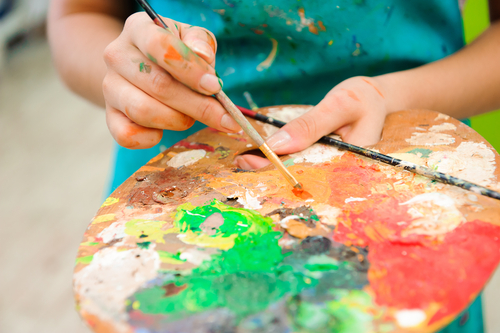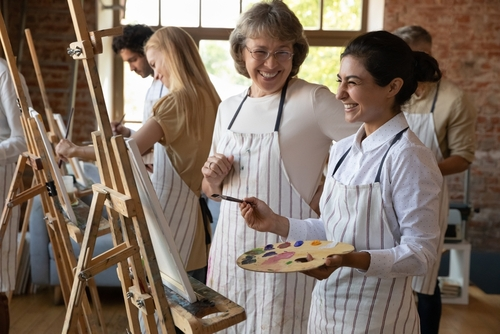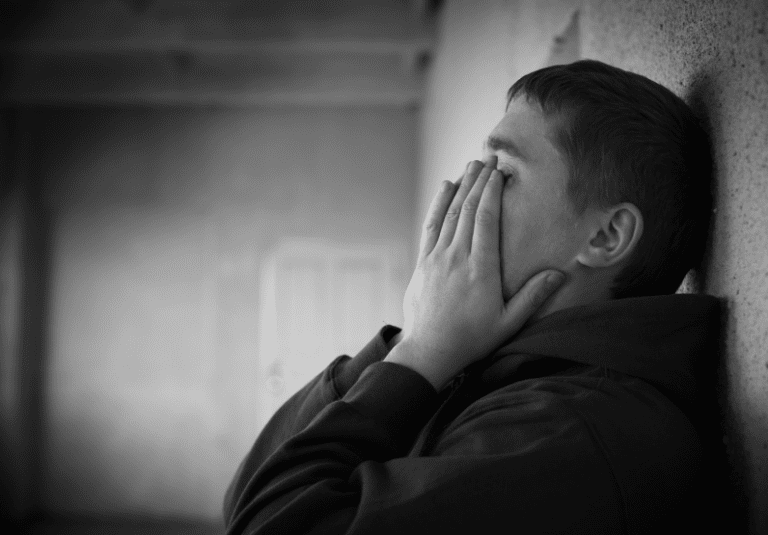Art therapy is a form of psychotherapy that utilizes various forms of visual arts to help individuals express themselves and explore their emotions, thoughts, and feelings. Art therapy has been shown to have numerous benefits for people of all ages and backgrounds. In recent years, art therapy has become increasingly popular as a treatment for addiction and mental health conditions.
In this article, we will discuss art therapy, the difference between art therapy and traditional talk therapy, how art can improve mental health, the benefits of art therapy, and the different forms of art therapy.
What Is Art Therapy?
Art therapy uses the creative process, creative expression, and the resulting artwork as a therapeutic and healing process. Art therapy can be done in an individual session, one-on-one with a therapist, or it can be done in a group setting.
Art therapy aims to help people discover new personal insights and develop new coping skills through self-expression. Art and creativity can assist individuals in exploring emotions, developing self-awareness, and managing stress.

Types of Art Therapy
Art therapy is a versatile form of therapy that can be tailored to meet each individual’s specific needs and goals. This allows for each individual to showcase their artistic expression in a way that they enjoy. Art therapy techniques may include, but are not limited to:
- Drawing
- Painting
- Coloring
- Photography
- Collage
- Doodling
- Sculpting
- Photography

Benefits of Art Therapy
Art therapy utilizes an individual’s creative process of making art to improve a person’s mental, emotional, and physical well-being. Because of this, art therapy has many benefits in therapy sessions. Here are some of the common benefits of art therapy:
- Promotes self-expression
- Reduces stress and anxiety
- Improves self-esteem and confidence
- Enhances problem-solving skills
- Promotes relaxation and mindfulness
- Encourages communication and socialization
Art therapy can provide individuals with a powerful tool for self-exploration, personal growth, and healing. Utilizing this therapy technique can benefit many individuals on their road to recovery and improve their mental health.
How Does Art Therapy Improve Mental Health?
The American Art Therapy Association states that the goal of art therapy is to enhance cognitive and sensorimotor functions, develop self-esteem and self-awareness, promote emotional resilience, foster insight, improve social skills, reduce conflicts and distress, and bring about societal and ecological change.
Art therapy can be a powerful tool for improving mental health by providing a safe and supportive space for self-expression, improving self-esteem and self-worth, promoting emotional regulation, reducing stress, and improving communication and socialization skills.

Studies on Art Therapy
According to a study on art therapy and mental health, there is a growing amount of research indicating that art therapy can be effective in alleviating depression and anxiety symptoms (Gussak, 2007; Ciasca et al., 2018). Gussak (2007) conducted an observational survey in northern Florida prisons and found that art therapy significantly reduced depressive symptoms. Similarly, a randomized, controlled, and single-blind study on art therapy for depression in elderly patients showed that painting as an adjuvant treatment for depression can reduce depressive and anxiety symptoms (Ciasca et al., 2018).
Furthermore, art therapy is widely used among students, and studies have shown that it can significantly reduce depressive symptoms (Runde, 2008; Zhenhai and Yunhua, 2011). Wang et al. (2011) conducted group painting therapy on 30 patients with depression for three months and found that it could promote social function recovery, improve social adaptability, and quality of life.
The study concludes that art therapy not only serves as an additional tool for diagnosing diseases, but also as a useful therapeutic method for patients to share their feelings, views, and experiences (Gussak, 2007; Ciasca et al., 2018). The use of art therapy is not limited by age, language, artistic ability, environment, and is easy to be accepted by patients.
Overall, the positive impact of art therapy on mental health has been well-documented, making it a popular, evidence-based therapeutic modality (Ciasca et al., 2018; Runde, 2008; Zhenhai and Yunhua, 2011).
Art Therapy vs. Traditional Therapy
Art therapy and traditional therapy are both effective forms of therapy, but they differ in their approach and techniques. Traditional talk therapy is what we first think of when we hear the word ‘therapist’ and can be beneficial for some individuals. Art therapy can be used in combination with traditional therapies or used by itself.
Art therapy differs from traditional therapy in its use of art as a therapeutic tool, non-verbal communication, focus on the creative process, process-oriented approach, use of metaphors, and group therapy. Both forms of therapy can be effective in improving mental health, and the choice between the two may depend on an individual’s personal preferences and needs.
Art Therapy at Knoxville Recovery Center
At Knoxville Recovery Center, we include art therapy in our extensive range of therapeutic offerings and healing modalities. Our comprehensive and individualized treatment plans allow our dedicated healthcare professionals to provide the best possible care for you. Some of our services include medical detox, addiction treatment, and aftercare planning.
If you or a loved one are dealing with addiction or mental health conditions, contact us today to learn more about our programs. We are here to help you on your journey to recovery.








